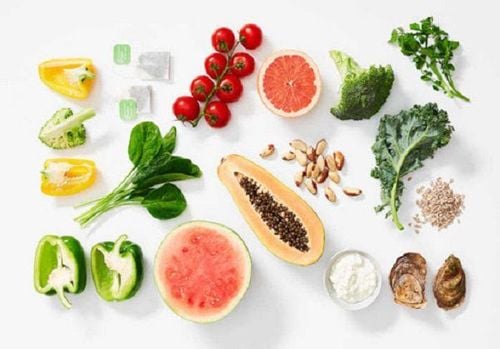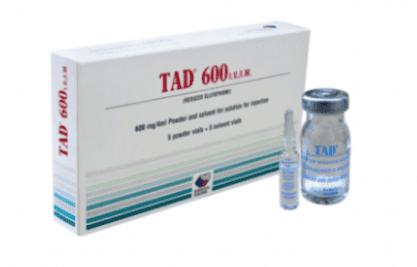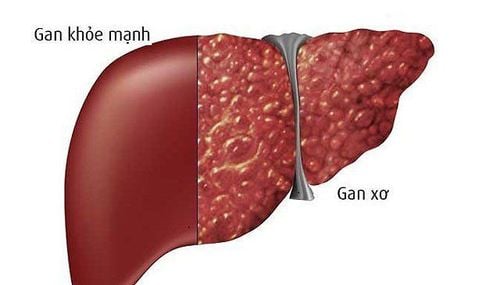This is an automatically translated article.
While free radicals and antioxidants are a natural part of the body, oxidative stress occurs because free radicals and antioxidants are out of balance. Oxidative stress can cause damage to many tissues, which over time leads to a number of diseases.1. Oxidative stress overview
Oxidative stress, also known as oxidative stress, is an imbalance between free radicals and antioxidants in the body.Free radicals are oxygen-containing molecules with an unequal number of electrons, which makes them easily react with other molecules and cause large chain chemical reactions in the body. These reactions are called oxidation, which can be beneficial or harmful.
Antioxidants are molecules that can donate an electron to a free radical without losing stability. This makes the free radical more stable and less reactive.
2. Effects of oxidative stress on the body
Oxidation is a normal and necessary process that takes place in the body. On the other hand, oxidative stress occurs when there is an imbalance between free radical activity and antioxidant activity. If functioning properly, free radicals can help fight pathogens or lead to infections.When there are more free radicals than antioxidants can keep in balance, free radicals begin to damage fat tissue, DNA and proteins in the body. Proteins, lipids and DNA make up a large part of the body, so damage to these components over time can lead to many diseases. These include:
Diabetes Atherosclerosis or hardening of blood vessels Inflammatory conditions High blood pressure, also known as hypertension Heart disease Neurodegenerative diseases, such as Parkinson's and Alzheimer's disease Cancer Oxygen stress Aging also contributes to the aging process.

Căng thẳng oxy hóa cũng góp phần vào quá trình lão hóa
3. Risk factors for oxidative stress
All people naturally generate some free radicals in the body through processes, including exercise and inflammation. This is a normal phenomenon and part of the complex body systems that keep us healthy.You can also be exposed to free radicals in the environment from a number of sources such as:
Atmosphere (ozone) Certain pesticides and cleaning agents Tobacco smoke Radiation Pollution High sugar diet , fats and alcohol can also contribute to the creation of free radicals.
4. Control and prevent oxidative stress
You cannot completely avoid free radical exposure and oxidative stress. However, there are a few things you can do to minimize the effects of oxidative stress on your body. It is important to increase the amount of antioxidants and reduce the formation of free radicals.One method of preventing oxidative stress is to ensure that you get enough antioxidants in your diet. The best way for the body to produce antioxidants is to have 5 servings of fruits and vegetables a day. Examples of antioxidant-rich fruits and vegetables include:
Berries Cherry (cherries) Citrus fruits Dark leafy greens Broccoli Carrots Tomatoes Olives Other dietary antioxidants include:
Fish and nuts Vitamin E Vitamin C Turmeric Green Tea Melatonin Onions Garlic Cinnamon

Một phương pháp ngăn ngừa stress oxy hóa là đảm bảo rằng nhận đủ chất chống oxy hóa trong chế độ ăn uống
Regular, moderate exercise routine: Helps increase natural antioxidant levels higher and reduce damage caused by oxygen stress chemical . Regular exercise also prolongs life, is less susceptible to the effects of aging, and reduces the risk of cancer and disease. Do not smoke: Avoid exposure to secondhand smoke. Chemical precautions: Including cleaning chemicals, avoiding unnecessary radiation exposure and other sources of chemical exposure, such as pesticides lurking in food or used in cooking garden. Be environmentally conscious: Eco-friendly initiatives sometimes also help reduce free radical production for you and the community, such as cycling. Use sunscreen: Sunscreen blocks ultraviolet rays from damaging your skin. Reduce alcohol consumption. Get enough sleep: Getting enough sleep is very important to maintain balance in all body systems. Bad sleep can affect brain function, hormone production, antioxidant and free radical balance, and a host of other things. Avoid Overeating: Studies have shown that overeating and eating constantly puts your body in a state of oxidative stress more often. So you should eat regular meals with small/medium portions. While it's not possible to completely avoid free radical exposure, you can make healthy lifestyle choices, including eating a healthy diet, exercising regularly, and keeping a clean environment to help your body stay healthy. may not suffer from oxidative stress, thereby preventing damage and disease.

Ngủ đủ giấc là rất quan trọng để duy trì sự cân bằng trong tất cả các hệ thống cơ thể
Please dial HOTLINE for more information or register for an appointment HERE. Download MyVinmec app to make appointments faster and to manage your bookings easily.
Reference source: healthline.com












